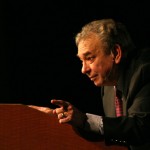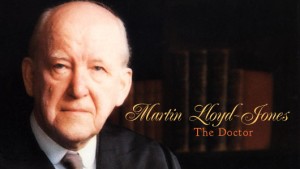We have all heard evangelists quote from Revelation: “Behold, I stand at the door and knock. If anyone hears My voice and opens the door, I will come in to him and dine with him, and he with Me” (Rev. 3:20). Usually the evangelist applies this text as an appeal to the unconverted, saying: “Jesus is knocking at the door of your heart. If you open the door, then He will come in.” In the original saying, however, Jesus directed His remarks to the church. It was not an evangelistic appeal.
So what? The point is that seeking is something that unbelievers do not do on their own. The unbeliever will not seek. The unbeliever will not knock. Seeking is the business of believers. Jonathan Edwards said, “The seeking of the Kingdom of God is the chief business of the Christian life.” Seeking is the result of faith, not the cause of it.
When we are converted to Christ, we use language of discovery to express our conversion. We speak of finding Christ. We may have bumper stickers that read, “I Found It.” These statements are indeed true. The irony is this: Once we have found Christ it is not the end of our seeking but the beginning. Usually, when we find what we are looking for, it signals the end of our searching. But when we “find” Christ, it is the beginning of our search.
The Christian life begins at conversion; it does not end where it begins. It grows; it moves from faith to faith, from grace to grace, from life to life. This movement of growth is prodded by continual seeking after God.
In your spiritual walk, are you moving from faith to faith, from grace to grace, from life to life? Are you continually seeking after God?




 “[The] term ‘decide’ has always seemed to me to be quite wrong. A sinner does not ‘decide’ for Christ; the sinner ‘flies’ to Christ in utter helplessness and despair saying — Foul, I to the fountain fly, Wash me, Saviour, or I die. No man truly comes to Christ unless he flies to Him as his only refuge and hope, his only way of escape from the accusations of conscience and the condemnation of God’s holy law. Nothing else is satisfactory. If a man says that having thought about the matter and having considered all sides he has on the whole decided for Christ, and if he has done so without any emotion or feeling, I cannot regard him as a man who has been regenerated. The convicted sinner no more ‘decides’ for Christ than the poor drowning man ‘decides’ to take hold of that rope that is thrown to him and suddenly provides him with the only means of escape. The term is entirely inappropriate.”
“[The] term ‘decide’ has always seemed to me to be quite wrong. A sinner does not ‘decide’ for Christ; the sinner ‘flies’ to Christ in utter helplessness and despair saying — Foul, I to the fountain fly, Wash me, Saviour, or I die. No man truly comes to Christ unless he flies to Him as his only refuge and hope, his only way of escape from the accusations of conscience and the condemnation of God’s holy law. Nothing else is satisfactory. If a man says that having thought about the matter and having considered all sides he has on the whole decided for Christ, and if he has done so without any emotion or feeling, I cannot regard him as a man who has been regenerated. The convicted sinner no more ‘decides’ for Christ than the poor drowning man ‘decides’ to take hold of that rope that is thrown to him and suddenly provides him with the only means of escape. The term is entirely inappropriate.” When we look at the context of John chapter 6 we discover there are numerous parallel passages that allow us to get a clear glimpse into what is meant here.
When we look at the context of John chapter 6 we discover there are numerous parallel passages that allow us to get a clear glimpse into what is meant here. Acts 16: 11 So, setting sail from Troas, we made a direct voyage to Samothrace, and the following day to Neapolis, 12 and from there to Philippi, which is a leading city of the district of Macedonia and a Roman colony. We remained in this city some days. 13 And on the Sabbath day we went outside the gate to the riverside, where we supposed there was a place of prayer, and we sat down and spoke to the women who had come together. 14 One who heard us was a woman named Lydia, from the city of Thyatira, a seller of purple goods, who was a worshiper of God. The Lord opened her heart to pay attention to what was said by Paul. 15 And after she was baptized, and her household as well, she urged us, saying, “If you have judged me to be faithful to the Lord, come to my house and stay.” And she prevailed upon us.
Acts 16: 11 So, setting sail from Troas, we made a direct voyage to Samothrace, and the following day to Neapolis, 12 and from there to Philippi, which is a leading city of the district of Macedonia and a Roman colony. We remained in this city some days. 13 And on the Sabbath day we went outside the gate to the riverside, where we supposed there was a place of prayer, and we sat down and spoke to the women who had come together. 14 One who heard us was a woman named Lydia, from the city of Thyatira, a seller of purple goods, who was a worshiper of God. The Lord opened her heart to pay attention to what was said by Paul. 15 And after she was baptized, and her household as well, she urged us, saying, “If you have judged me to be faithful to the Lord, come to my house and stay.” And she prevailed upon us.